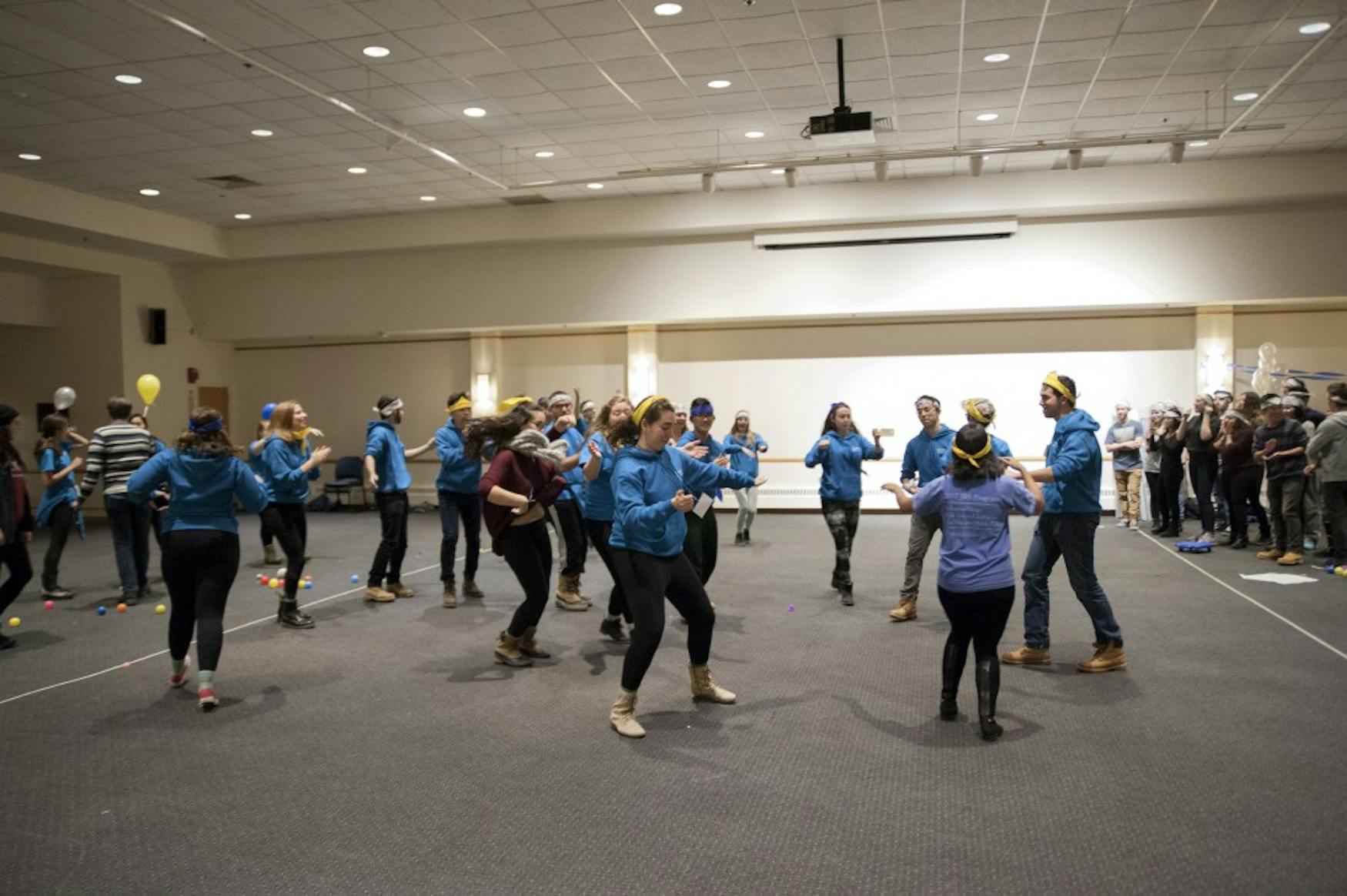Getting Oriented
Orientation leaders welcome incoming Midyear class onto campus
How do you stump a couple of Orientation Leaders? Try asking them to pick their favorite part of Orientation. From discovering all the resources Brandeis offers, to facilitating social and informational events to integrating their grouplets (Brandeis slang for new students at Orientation) into the Brandeisian way of life, Maya Fields ’19 and Ben Korman ’19 revealed in an interview with the Justice what it’s like to be an OL, and why picking their favorite part is such a delightful dilemma.
This year, it all began about 10 days before the new semester started, when roughly 100 returning students arrived on campus to train as OLs. Their job is to be a guide, resource and mentor to new students during their first days on campus and beyond. As Korman puts it, “We are not there to just move people from place to place, and tell them information and then leave. … We want to be there when they’re stressed out over classes and having trouble with friends.”
After a week of team-building exercises, meeting with all the different organizations on campus and learning as much as they can about Brandeis, the OLs officially began Midyear Orientation with the welcoming of new students to campus on the evening of Jan. 6. The next two and a half days were jam-packed with OL-hosted events, from informational sessions on diversity, health and safety to social gatherings such as casino- or beach-themed parties.
Fields and Korman believe that part of the appeal of Orientation is that the student perspective is taken into consideration every step of the way, from the three to four student CORE Committee that plans Orientation to the OLs themselves who run it. “We’re not these, like, really old adults. We’re students, just like them,” explained Fields. “So, they can see us as someone who literally just went through this one, or two, or three years ago,” she said.
Korman added that they tailor Orientation from semester to semester to meet the needs of students at different times. So in the fall, the events are bigger and louder because that Orientation involves many more students, while orientation in the spring and summer tends to be more introspective since it involves fewer students.
As one might expect, entertaining and informing hundreds of students in only a few days can come with challenges, but Fields and Korman assured that it is “a hundred percent worth it,” and that overcoming the challenges is part of what makes the experience so rewarding.
Fields recalled, for example, that she had a stomachache on the first night of her very first orientation and wondered how she would get through the rest of the week. It was then that she realized not only how fortunate she was to have all the other OLs around to lift her spirits but also how inspiring the new students could be. “You realize that you really want to make the experience great for them. I know, for me, one reason I wanted to be an OL is because I had some really awesome OLs, and I was like, I want to follow in their footsteps and give back to the new first-years coming in,” she said.
Korman agreed, admitting that he relied heavily on his OLs during his first year and now enjoys giving back to new students by lending them the same opportunity that he had to lean on someone for support.
He has also realized that Orientation is often his favorite week of the semester because of — rather than in spite of — how busy it keeps him. “I think balance implies that it’s two opposite things — being an OL and being a student — and I don’t really think it is,” he explained, recognizing that he would act no differently if he wasn’t an OL. The only difference he sees is in his ability to undertake even more responsibility as an OL, and to have a platform on which to access the resources he would already be sharing if he wasn’t an OL. Fields added that, given it is a volunteer position, she doesn’t think any OL would be doing what they do if they didn’t enjoy it.
She went on to dispel the myth that OLs have to be extroverts, admitting that she can be a little shy at first in some situations. “I think OLs are … seen as these really enthusiastic, outgoing people, and some people are kind of afraid of applying for that reason, because they don’t think they have that kind of energy; and I really think that’s not always the case, as much as we might come off as that,” she said.
Korman, meanwhile, takes pride in his loudness and “resident yeller” status, having lost his voice in every Orientation he has attended so far. “I mean, you can hear now,” he joked, “I still don’t really have my voice back, and it’s so worth it.”
Reflecting on how being an OL has changed their outlook on life, Fields and Korman both acknowledge the close friends they’ve made and the personal growth they’ve experienced. “This is going to be, like, the most OL answer ever but … one of the things which I think, as an OL, I’ve learned is just how many resources this school has for, like, so many situations,” said Korman.
Fields agreed, explaning why some OLs actually enjoy Orientation more than the students, reflecting that “you’re seeing your grouplets go off on their first day, and you’re like, ‘look at how far we’ve come with them from, like, three days ago.’ It’s so worth it. It’s really an amazing experience.”



Please note All comments are eligible for publication in The Justice.